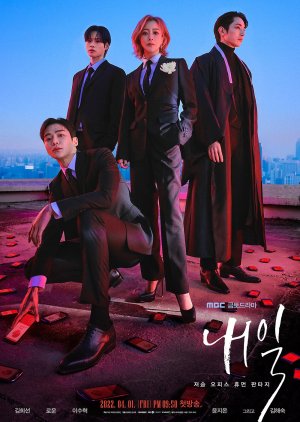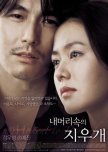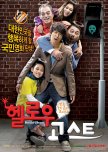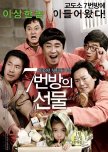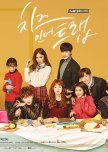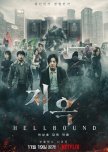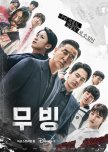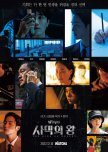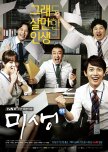
Not exactly poetic
Imagine Robert Frost traveling along a path in the woods and finding a fork. On the right, the more beaten path. On the left, the proverbial “one less traveled by”. He chooses left and moves forward. But after a bit, reconsiders and returns to the fork. Then chooses the right and, again, proceeds further into the woods. Unhappy with his choice, he returns to the divergence and resumes his stroll on the left. But he is no happier on the left than he was on the right and retreats again, this time with certainty to take the path on the right. After multiple repetitions, he wanders aimlessly in a circle at the fork, traveling in no particular direction at all for any length of time. Not a particularly compelling poem had his most famous work followed this trajectory.But this is a pretty fair metaphor for “Tomorrow”.
Like an aimless wander through some woods, it might not go anywhere meaningful but that’s not to say that it’s entirely unpleasant. There’s some marvelous casting. In his previous work, Rowoon has demonstrated a relaxed and natural vibe and he’s got a pretty full toolbox of skills to capably lead any tentpole drama. Kim Hee Sun is a terrific match for the role of Goo Ryun. Kim Hae Sook is a welcome sight in any production.
The concept is a refreshing mix of grim reaper and the Hollywood blockbuster “Men in Black”. Rowoon’s Joon Woong, through an unlikely chain of events, finds himself working as a not-yet-dead grim reaper assigned to the Crisis Management Team, a special unit that is tasked with helping souls on the brink of suicide. It’s very dark and heavy stuff, but the production manages to find some lightness and humor. Joon Woong’s childlike, adventurous personality aids the entertainment quotient enormously. There’s lots of Barry Sonnenfeld-style touches too like Kim Chil Doo’s multiple mute appearances. And the production value matches the need for outlandish hair and wardrobe, otherworldly sets and occasional specific effects.
The photography and OST aren’t award-winning but neither do they detract.
And where “Tomorrow” takes an approach as a procedural show, it has some exquisitely outstanding episodes. Several of the episodes in the first half of the series (which has a more procedural bent) are powerfully emotional. The characters and guest acting performances by the targets of the Crisis Management Team are wonderful. Rowoon’s interactions with these characters show off his acting strengths.
But this production can’t stay committed to this path. It’s got a serial narrative underneath and eventually the procedural approach dissolves and things go backward. Or south. Maybe down? It’s not clear.
Among the most problematic elements are some very awkwardly introduced backstories. There’s also too many of them as Kim Hee Sun’s Goo Ryun, Lee Soo Hyuk’s Joong Gil and Yun Ji On’s Ryung Goo characters all get period piece backstories. But none work well. Goo Ryun’s is in fragments that don’t fit together. Joong Gil’s seems to be threaded with Goo Ryun but it’s so haphazardly edited in to the present day storyline that it becomes an unwelcome distraction. The worst, however, is Ryung Goo’s episode-long slog well past the halfway mark. Had it been shorter and earlier, it’s conceivable it could have contributed. But Ryung Goo’s character is not exactly a breath of cool, crisp mountain air to begin with and spending an entire hour in a historical era where everything goes badly and then even more badly and then just goes downhill at an accelerated pace is simply unpleasant. Even had there been an overwhelming positive outcome in the present day, it’s not enough to balance out the misery of the backstory.
As for the present day, Joong Gil is a mess all-around. The character is dull. Lee Soo Hyuk’s portrayal is unwaveringly one-note which is an expression of no expression at all.
Kim Hae Sook has some lovely moments early on in the series, but as the episodes progress, she appears less and less frequently.
Rowoon’s Joon Woong is a solid character and has a perfectly good setup where his adventures put his mother and younger sister into a precarious predicament. Like with so much else though, after a promising start, the focus wanders away in other directions.
Most problematic is that the main characters, whether it’s just Joon Woong and Goo Ryun, or if the main characters also include Joong Gil and Ryung Goo, they simply don’t fit well. Chemistry is an overused term as professional actors worth their salary should be able to fool an audience that they genuinely have feelings for each other. But a lack of chemistry is precisely the most apt description of what ails these group. The characters just don't fit together and, frankly, "Tomorrow" doesn't seem to care that they are only somewhat interesting characters separately and wholly unconvincing as a team. Although some blame might fall on the actors or casting, more of it should be borne by the writing which introduces too many sideplots and the directing which invests heavily in creating a modern, quirky and fantasy setting and then jettisoning it to play it safe with worn-out themes.
“Tomorrow” has enough bright spots to recommend it but expectations should be tempered.
Cet avis était-il utile?

Marshmallow-Chocoholic
26 personnes ont trouvé cette critique utile
‘Tomorrow’; Death Meets Satire In Rowoon’s Latest Fantasy Series…
Mortality is never an easy subject to tackle in dramas. Based upon the eponymous webcomic (‘ 내일’) by Llama, fantasy series ‘Tomorrow’ decided to bring forth the topic of death in a powerful smorgasbord of social issues and topics. Instead of reimbursing the old cliché of grim reapers being harbingers of doom and death, ‘Tomorrow’ rebrands its morbid psychopomps as fashionably suave members of the Crisis Management Team, attempting to save certain unfortunate souls from suicide.
The series focuses upon an alumnus from a prestigious university, Choi Jun-Woong (SF9’s Rowoon-‘Extraordinary You’, ‘She Would Never Know’ and ‘ The King’s Affection’). Struggling to land himself on the job market, Jun-Woong’s life is changed forever when he ends up encountering angels of death Goo-Ryeon (Kim Hee-sun-‘My Fair Lady’, ‘Angry Mom’ and ‘ Alice’) and Lim Rung-Gu (Yoon Ji-on-‘Dear My Room’, ‘Be Melodramatic’ and ‘Jirisan’ ).
Waking up outside of his corporal body after an accident, Jun-Woong discovers that he has been physically rendered in a comatose state. He is given the choice by Director, Jade Hwang (Kim Hae-sook- ‘Precious Family’, ‘My Father Is Strange’ and ‘Inspector Koo’): he can choose to be trapped in his unresponsive body for three years, or he can work with them in a ‘’half- dead’’ state, reducing his comatose state to six months and then landing any job he wants after he wakes up.
Woong is assigned to the Crisis Management Team alongside Goo-Ryeon and(, by default of being her protégé,) Rung-Gu. As the unlikely trio attempt to work together as a team, Jun-woong soon discovers that his new position is far from being a walk in the park.
Adapted to the small screen by novice screenwriters Park Ran, Park Ja Kyung and Kim Yu Jin, ‘Tomorrow’ places heavy emphasis upon prominent social messages and themes.( Including sensitive issues such as suicide, the trauma of war, inequality, bullying, the generational trauma of South-Korean comfort women, depression, peer pressure and eating disorders.)
Without a doubt, ‘Tomorrow’ is a varied accumulation of satire, provocative angst and mirthful wit. Although the series was often tactful within its approach to various subject areas and themes (in particular helping to offer light-hearted respite in-between heavy-hearted points of the narrative), the screenplay could admittedly feel somewhat out of place at times with its attempts to balance between hard-hitting messages and comic relief.
Of course this is not necessarily to say that the comedy shouldn’t have existed at times. Certain issues tackled in ‘Tomorrow’ were certainly supposed to be heavy-hitting and the requirement for an interim of slapstick comedy or comical exchanges was certainly necessary. (In particular, this was shown at times by Park Ran, Park Ja-Kyung and Kim Yu Jin being able to strike a surprisingly harmonious balance for most of the series through the kaleidoscopic array of themes and contrasting tones for their audience.)
However despite certain commendation certainly having to be given to the trio of screenwriters for their consistently provocative themes and tones, ‘Tomorrow’ could sometimes feel as though it disengaged between its plot and themes. To explain this further it is important to reiterate that comic relief was often quintessential within the screenplay in order to offer respite from darker themes and subject areas.
On the other hand, it did become noticeable at times that the series would often fall victim to divulging deeply into comic exchanges. This would often divert attention away from building-up the narrative events and characters, or alternatively struggling with the opposite problem by failing to allow a necessary brake or moment of light-hearted respite for audiences to grapple with events or characters. ( This seemed to flare at times later in the show in episodes such as ‘’Someday, Because Of You’’. Although the episode tackled a heartfelt subject area and was surprisingly bittersweet , it often felt as though the prominent meanings behind the messages in the episodes weren’t as reinforced as they could’ve been.)
Of course, this is not to make out that the entirety of the writing for ‘Tomorrow’ was inadequate or unwatchable in any way. Although perhaps certain issues ( in particular mental health and eating disorders) were perhaps
not fully explored by the screenplay or given speedy outcomes , ‘ Tomorrow’ often placed a certain level of open finesse with addressing issues and helping the audience and the characters coming to terms with them.( In one of the later episodes of the series entitled ‘’Spring’’, the audience were supposed to be particularly hit home with an onslaught of emotions with the controversial and historical subject area of Comfort Women, focusing on a dark chapter in South-Korean history.)
Naturally this brings up the discussion surrounding character-writing within the adapted screenplay for ‘Tomorrow’, as well as the performances by the main cast. Perhaps one of the most notable roles in the drama is given to main male lead Choi Jun-Woong, played by idol-actor Rowoon.
Rowoon has often been the subject of intrigue and debate with his previous career trajectory as the ‘’ leading man’’. Nevertheless, Rowoon offered a fairly consistent onscreen performance as the main male lead and it is fair to say that for many viewers, this could easily be seen as one of Rowoon’s best performances yet. As the main character of the narrative and storyline, Jun-Woong embodies what many would probably classify as the ‘’everyman’’ trope.Of course, this wasn’t a bad approach per say. It is sometimes common in fiction to see a main character become a medium for the audience, especially with a character being uprooted from their mundane, everyday life and being placed in an unfamiliar world or setup.
For main lead Jun-Woong, this was evident through being caught between two worlds: the afterlife and then the everyday mortal world. ( This was also shown arguably through Woong being conflicted in initial problems with common problems of interview and job struggles and then again with attempting to navigate his new role as a member of the Crisis Management Team .)
However, this also brings up an intriguing debate with regards to Jun-Woong’s character-arc. It shouldn’t come as a surprise that Jun-Woong is purposefully supposed to be flawed at times. Naturally this did not always enforce Woong to be placed as ’ heroic’’ figure at all times within the series.
He had his evident flaws and ‘ Tomorrow’ placed heavy emphasis upon some of Woong’s values feeding into an evident critique of social conformity by South-Korean society vs developing subjective morality and beliefs. ( In particular the screenplay would sometimes bring this idea up in early episodes with Woong’s shared social views on issues such as bullying, before contrasting this in later episodes with the main lead developing his own values and standpoints.)
Although it certainly allowed Woong to act as an embodiment of social views, it is noticeable that this often forced Woong into playing “ certain roles” in order to propel the storyline. Again, this isn’t always a bad writing decision but it did often feel as though there were some poorly tied loose ends such as Woong’s own personal struggles with his situation, his backstory and personal goals were often disregarded until the ending of the series.
In addition to the casting choice of Rowoon, it is hard to ignore Kim Hee Sun’s performance as grim reaper Goo-Ryeon. Hee Sun’s acting career has been eclectic and while respectfully her acting performances have varied, the actress’ pink dye job certainly helped Kim Hee Sun to embrace her suavely mysterious onscreen persona as the female lead. Alongside fellow costar Yoon Ji-On who played her laidback mentee Rung-Gu, audiences will likely find themselves tearing up and laughing at the antics of the two characters’ interactions and appearances onscreen.
As an onscreen character, Goo-Ryeon is arguably one of the most enigmatic and intriguing characters in the series. She is often fairly detached from overtly emotional displays like Woong but she is impassioned by her cause to help others. Initially viewers are supposed to remain uncertain of Ryeon’s onscreen presence. In particular, her unconventional acts of tough love towards the main lead and those she is seemingly supposed to save will bring about topics of intriguing debate for viewers.
However as the series soon reveals, Ryeon’s root cause for her actions are sourced from genuine sincerity for her position as a member of the Crisis Management Team, especially as a result of her complicated backstory. Naturally as a consequence of this writing point, ‘ Tomorrow’ placed heavy emphasis upon her mysterious backstory in the latter half of the series, similarly echoed to a lesser extent with side character Rung-Gu also.
Despite both characters having their fair share of traumatic and difficult backstories, it often felt as though Ryeon’s character arc felt a little rushed in particular. . Of course while audiences certainly did see a few hints of foreshadowing at times earlier on in the series ( in particular with Ji-On’s trauma), it certainly felt as though some of these backstory revelations and plot twists could’ve been developed or built up. There was a lot for viewers to digest with regards to Ryeon’s past and her important connections to other characters but due to an anticlimactic buildup, the momentum of these events rarely felt as though that they had reached their entirety even by the finale.
Aside from the main characters, it is also important to mention about some of the reoccurring characters of ‘Tomorrow’ also. Model-actor Lee Soo-hyuk ( ‘ Vampire Idol’, ‘The Scholar Who Walks The Night’ and ‘ Doom At Your Service’) starred as Park Joong-Gil, the straight-laced head of the Humanitarian Management Team who shares a complicated past with Ji-On, as well as Kim Hae-Sook playing the role of the Jade Hwang, the head director of the afterlife and the bureau of grim reapers. The supporting characters certainly had their necessary roles to play in the events of the narrative. In particular during the later events of the series, viewers are given several surprising backstory revelations but admittedly these side characters felt as though they deserved more screen time or interactions with the main cast in order to build up their character arcs slightly more.
Then of course there is the discussion surrounding the execution of the series. Perhaps it is important that ‘Tomorrow’ decided to offer viewers with a fairly systematic approach; introducing viewers to main lead Woong’s predicament and his unlikely alliance with the main leads, the new dilemma or issued faced in the episode, the reactions and causes of debate for the characters and viewers, the dilemma reaching its climax and then helping to resolve or bring a conclusion to the events of the episode.
This approach by the trio of screenwriters certainly allowed the screenplay to tackle a wide array of issues and problems. However, it certainly did not come without its problems either. A lot of the storyline’s early plot objectives were rarely sketched out aside from the “ mission of the team”, leading seemingly important events or obstacles for the main leads being disregarded at times and then being given half-baked conclusions by the ending of the series. As a consequence, the ending of ‘ Tomorrow’ will likely leave viewers with mixed-feelings; bittersweet and certainly offering a denouement to the events of the storyline but rarely tying off all loose ends or bringing a complete feeling of satisfaction for viewers also.
Stylistically under the leadership of directors Kim Tae Yoon (‘Another Family’, ‘New Trial’) and Sung Chi Wook ( ‘Special Labor Inspector Jo’,‘ Kairos’), ‘Tomorrow’ was often caught up in an impressive onslaught of aesthetic shots and glossy gradients, with mood lighting and tones helping to add emotional turbulence and significance for characters and viewers in certain scenes. Perhaps one slight nag with the cinematography came through a lack of consistency. Rather than attempting to stick to a particular consistent form of filming or shots and tying these scenes and moments with the worldbuilding and lore of ‘Tomorrow’, the extravaganza of surrealist scenes and panned shots heavily influenced by big-budget movies felt somewhat disengaging from the screenwriting and world building at times. Nevertheless it is fair to say that ‘ Tomorrow’ did boast an impressively stunning array of imagery and scenes.
The OST for ‘Tomorrow’ was comprised mainly of a collection of modern pop tracks, varying somewhat dependent on personal tastes. Perhaps there may be certain songs such as the surprisingly upbeat rap song ‘’Red Light’’ by J.don and the morosely lovelorn ballad ‘’My Loneliness Calls You’’ (‘’나의 외로움이 널 부를 때’’) by Suran which will appeal across the board for viewers.
The sixteen-episode webcomic adaptation will offer viewers with a surprisingly heart-wrenching mixture of social commentaries, traumatic character backstories and comic relief. At times, ‘Tomorrow’ often struggled slightly with maintaining a harmonious balance between its writing and messaging. ( This often lead to parts of the storyline feeling rushed or lacking a sense of completion such as the ending or certain character arcs.) However for those looking to indulge in a fantasy series beyond the surface level with some prominently current social and critical commentaries with a touch of traditional Korean folklore and mythological beliefs in the modern world , then ‘Tomorrow’ will certainly offer viewers with a good watch.
Cet avis était-il utile?
Suicide is a sensitive subject
And they did not fail in my opinion. I mean, it could have been a catastrophe. If you know someone who works with mental health though, you should probably not recommend them this drama... lol. But if you see it as pure fantasy it shouldn't bother you too much.The good:
- The main cast.
- A few extremely strong episodes, for example ep 6 was amazing.
- Good production values and even the special effects were cool (but its pretty obvious they used up most of the effects budget in the fist couple of eps...).
The maybe not so good:
- Often overly dramatic to make it as tragic as possible, sometimes to the point its even silly.
- The formulaic format. Almost every episode has the same structure and is always magically solved in the end.
- Suicide is an extremely complex subject and sometimes it gets too simplified - for example the person saved by some fried chicken, or the eating disorder episode - the FL literally just talked to the suicidal person a few times and it was all solved... like magic. Thats not really how it works in real life...
- The comedy scenes. I don't think the comedic sense they had in this drama was funny overall, Sorry.
- Many weak/filler episodes, for example ep 7 or the one with the suicidal dog. It made me roll my eyes... The eps were overall very hit and miss, inconsistent.
- After all, the ending felt rushed.
(A bit too many "funny" costumes & heavy make-up in the underworld... but I guess thats just nitpicking, sorry, lol).
So for sure its a bit of a mixed bag - BUT definitely a drama worth checking out! A 7 from me.
Cet avis était-il utile?

And a bit of sailing ships I preferred more than romance genres. It's sad non romances have great ships but they're never the focus.
The bad: a bit flat characters and connections. Too easily solved and brushed past depression, bullying and suicide. Sadly it's not how real world works and sadder cuz this probably won't "teach" people to be kinder.. the bit at the end made me tear up because it is that simple to just stand up and be there for someone but no one wants to do the "extra work". It was a bit too long and I can't say I actually watched it full heartedly
Cet avis était-il utile?

Showing the Good, Bad & Controversial
❤️ Lesson: There will always be hardships, but only you can save yourself from it, live the best version and look around - cause there might be someone to help you look forward to a "tomorrow" which will be beautiful / 아름다운❤️ Nutshell Review:
Every episode is story of different individuals who will make you think on lines of existential crisis, showing the good, bad and difficult choices we make as humans with complex emotions & relations. But there is also an underlying backstory of the main characters (though not a satisfying one for Rowoon's I feel in final episode, hence -0.5).
Good one-time watch, though some episodes/cases may make you want to revisit (Example - Episode 9 🐶)
❤️ Detailed Review:
This show is FOR YOU, if you like a PLOT where:
• great narrative to show the good, bad and controversial side of human nature
• there are elements of mystery, mythology/fantasy
• it is about SECOND CHANCES
• past lives mix with modern times
• female lead is strong with impeccable edgy fashion style
• male lead is righteous, speaks his mind but also goofy & handsome
• there are underlying backstories for characters - main & support cast, both
• visual affects are good-to-great
• people make mistakes, learn and find redemption
• every episode will keep you glued to your screen
• every episode will explore a new character's challenge - yet tie it all together for the main plot and cast
• every week you will wait for the next episode with genuine anticipation
• there is a deeper meaning about values and relationships of life, which are relatable to certain level
• focus on dark/deeper topics like suicide, murder, death in general
❤️ The Cast is Strong
• Kim Hee Sun and Kim Hae Sook (reminder of their previous drama - Room No 9, brilliance)
• Lee Soo Hyuk (cold, calculating, goes by the book, reminds of Lee Dong Wook in Goblin, but am sure there is a history here)
• Rowoon (he is growing and how!)
❤️ So, why did I PICK UP this drama?
99% of the time - I watch a drama that is COMPLETED airing.
• Rarely, a drama like this comes along that demolishes this resolve of mine
• Past Dramas that did: Mr Queen, True Beauty, Business Proposal
• So you can get an idea of the caliber of this drama - that this is not a bad pick, and you can give it a try too!
I was already a fan, before I watched the show:
• I write as a hobby, especially spin-offs of dramas I finish watching
• Usually with themes of alternate endings, or imagining the reader with the lead actor/actress.
• For this show Tomorrow - the premise & trailer itself was so good, that I drafted a spin-off beforehand.
Now at the end, the stories and lessons were beautiful, the background story and end to our characters made me take the rating a notch down to 9.5 - but still a great watch and rewatch anytime!
Cet avis était-il utile?

Self harm is last cry for help
Tomorrow deals with controversial topic of suicide. In most of the religious texts suicide is the greatest sin you could commit. It leads to one way ticket to hell. Harshest punishments are given to those people committing suicide.Rowoon due to some circumstances ends up on RM (Risk Management) team, whose sole job is to prevent suicides. They identify people at risk and try to convince them using appeal, request, threats etc to not end their lives. Both of the cases dealt in first 3 episodes were quite good.
Though the tone of the show is sombre, still tries to show you ways of fighting despair. It is filled with hope. Words of encouragement. Till now Rowoon steals the show with credible empathy as required by his character.
Failure means you just need to try again!
I wasn't gonna do any review update until I finished it. But, must I say this show became better, though it was good to be begin with. The subplot involving old soldier and lady with eating disorder definitely evokes some deep buried feelings in you. One good thing about this show is that it always ends every story with an optimistic tone.
It went downhill in second half.
Cet avis était-il utile?
Sensitive topic handled well
S Korea has the highest suicide rate in the OCED. It is therefore unsurprising that some brave souls have decided to explore this sensitive subject. Without pontification or moralistic judgement, the show explores the motivations for suicide and takes a sympathetic look at the personal life histories, as well as societal pressures and judgements surrounding the would-be suicide victim.To achieve this sensitive exploration, the show takes a step back and relies on the introduction of the supernatural - not the Grim Reapers but a protection team that goes in and tries to stop the suicide from even occurring. How nice that Heaven would think of that (and this is addressed at the beginning of the series!) To do so, they delve into the victim's past. Although they're not allowed to change the past, they help the victim to come to terms with a turning point in their lives that caused great regret and thus led to repercussions for the rest of their lives.
The drama could very easily have been a pseudo time-travel cum afterlife show, and we've also seen many Grim Reaper shows where someone tries to help the deceased resolve his/her last wishes or right an injustice that cause them to lose their lives. However, this show is a fresh take on the genre of supernatural Grim Reaper/karma shows. Each episode or so deals with a different victim, so the show is kept fresh because if you find a certain story boring (some stories are quite draggy), you know that it'll end. Also, always stay tune for the Epilogue at the end of each episode.
I enjoyed watching the show because the ups and down kept me entertained. There were humorous bits that made me laugh, touching bits that made me cry, as well insightful ponderances by someone on the verge of death that left me reflecting for days about the meaning of life. My favourite episode was episode 7, about an old man who spent his life collecting recyclable junk. Without giving too much away, that was my favourite episode as it was extremely meaningful.
Kim Hee Sun has chosen good scripts throughout her career, and this one hasn't disappointed either.
Cet avis était-il utile?

Architectofnonsence
7 personnes ont trouvé cette critique utile
Good message but bad delivery ,, tear jerker most of the time
This drama was good and bad at the same time ,, and they are perfectly balancedIt had great message about prevention of suicide but had some horrible solutions sometimes
the writer didn't have any clue about some of the mental disorders he presented so clueless that sometimes borderline dangerous to be solved that way and sometimes just ridiculous
a fan said it in the comment section there was an episode where the suicidal person had anorexia they told her to eat , why can't you love your body and eat and she became all better and ate ,, every thing is fine now LOL
It is like a person with Asthma why can't you breath there is oxygen everywhere LOL
THAT COMMENT was perfect to describe some of the solutions they used in this drama that addresses suicide
Some episodes made me bowl like a baby ,, especially the episode about the women who were captive during the japanese occupation ,, as an Egyptian didn't know about that part of history ,,it was really emotional and touched my heart that they voice these strongest women to the world
So
this drama shifted between hit and mess throughout the episodes and was enjoyable to watch ,, the cast was perfect ,, may be wanted seo hyuk to have much more screen time than this but it's fine not going to rant about that ,, he likes not being the lead of anything
the fictional story about the reapers was laughable and that whole company system for the underworld was laughable ,, the funny part of a sad drama
they didn't give proper attention to the main lead's own story and they wrapped it up badly
Happy ending ,, I'm fine with that
but no second season for this ,, that's enough for one time drama
won't be watching it again too
Cet avis était-il utile?
Good nothing more and nothing less
The fantasy is not my style of drama that I usually watch but the beautiful photo and the rare theme of suicidal make me want to try.It’s a disappointment after all. The acting is really bad for me. Nothing is natural expect for gu ryon , Jung Gil and the directrice. The other main actor lack a lot for me and overreact which harm a lot the drama. The chemistry for the GR team is totally missing and it’s difficult to believed that that are some good feelings between them.
The theme of suicidal is sure extremely difficult to treat as a subject for a drama. For most of the stories, I think it was a success even if often the story is a little bit too long or the actor not so good. But as we continue the drama we look into the main character story and it’s when things don’t work for me. Ep 9 was useless and the story Ryung gu too long. I feel like as soon as the main characters are involved personally something is off and become a totally mess. To be honest I was sick of the protagonists and just want the last mission to be solve without all this sentimental talking from the principal characters. I end up missing empathy for them.
With the rise in tension between gu ryon and Jung Gil, I was expecting more for the final but it was just flat on my opinion.
Overall It is good, nothing more and nothing less. There was some more potential but the lack in acting and chemistry from the actor waste it. The scenario wasn’t enable to treat the story of the main characters without being annoying at the end.
Cet avis était-il utile?

Cet avis était-il utile?

Don't be fooled!
Why did I watch this again? I got sucked into another disappointing fantasy drama by the stylish appeal and the allegory of running a suicide hotline like a risk management team stuck in a corporate hell.Don't be fooled! Tomorrow pretty much just ran its course as a predictable formulaic save the victim of the week. The drama tries to tackle difficult topics like bullying and sexual harassment but they all seem to fall pretty flat unable to tap into any real emotional pull. I found that the fantasy setting really detracted from the drama and eventually became a barrier for me taking this drama seriously. The characters often came off as predictable and even cartoony. Emotions seem forced, and the melo is relentless. It's disappointing to see a drama attempting to address these difficult topics completely lack any substantial depth or gravity. It just ends up feeling weirdly empty, embarrassingly cliche, and shamefully laughable ...
Dramas like these remind me why I'm supposed to ALWAYS stay away from fantasy. Look elsewhere, if you are looking for a drama with real heart. This isn't it.
Cet avis était-il utile?
Cette critique peut contenir des spoilers
Peeling back the curtain at suicide
This had a similar vibe to Mystic Pop Up Bar, though with a rather more edgy feel. The cinematography was beautiful and the characters slowly reel you in until you root for them - even the anti-hero, stroke villain Park Joong Gil , who appears unforgiveable at times and yet he's exactly the type of aloof, cold-blooded creature girls hate to love.What I liked:
This one made me reach for the tissues in a good way. The writers took us on a journey through people's pain, their darkness and agony, until you related and felt it with them. It was easy to understand why each character wanted to give up on life. I have nothing against 'It's Okay to not be Okay' but this is the series I'd recommend for peeling back the rabbit warren of a person's brain, and the dark paths our thoughts can take us down. Each episode pulled me in, and though perhaps a little preachy, made me value life more. Totally worth the watch!
What I wasn't sure of:
Not necessary for the enjoyment of the show, but dependent on whether there's a second series I thought the writers made a mistake with Goo Ryun & Park Joong Gil's fated/not-fated relationship. It's clear from the get go there's chemistry and I'm not good at math but how long did Goo Ryun wear rouge on her eyelids because the love of her life liked it? The resolution felt hurried and ambiguous, and not measured well against the range of emotions expressed in the history of both characters.
What I didn't like:
Personal taste but seriously Choi Joon Woong yelled a LOT. Couldn't quite buy in to his righteous-anger scenes.
I thought the ending was OK, it didn't disappoint me but it didn't give me that nice feeling of a present wrapped in a bow. A few reviews comment on the humour being misplaced, I actually quite liked it. I think the seriousness of this drama needed a bit of levity. And actually that's what life is about - finding joy in the shadow.
Final recommendation is please watch it. This one deserves it.
Cet avis était-il utile?

